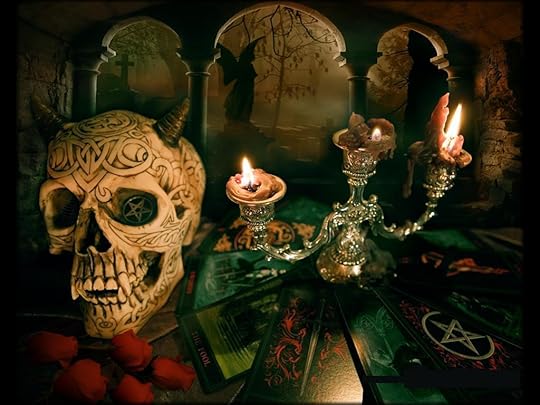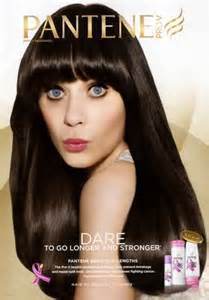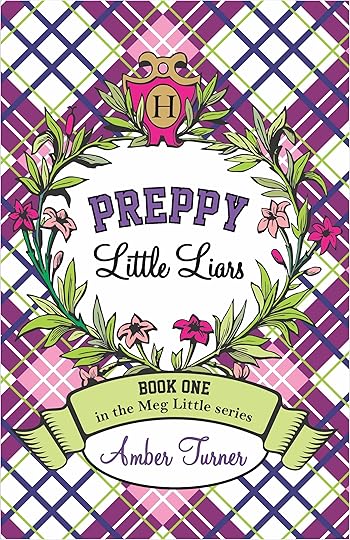Amber Turner's Blog, page 5
July 7, 2013
Fear Itself (Or Why I Write Dark Fiction)
I love being afraid. It sounds strange, but it’s true. Ever since I was a little girl, I longed for the moment when someone would jump out from behind a closed door in the middle of the night and scare me. I’d stay up late at night with a book by Koontz or King, crouched down on the floor beside a night light (I shared a room with my younger brother so the light was for him), and read macabre tales early into the next day. Halloween was my favorite holiday (and still is) and I imagined what I’d rename myself once I was made a kickass, punk vampire like the kids in The Lost Boys.
I loved werewolves, zombies, ghosts, demons, witches, clowns (yes, they count as monsters thanks to the murderous toy in Poltergeist and Pennywise in IT), and the aforementioned vamps. Serial killers intrigued me and possession stories dealing with Satan both fascinated and terrified me.
Strangely, I didn’t start writing my own horror stories until I’d reached adulthood. I spent most of my adolescence writing Emo poetry and pretentious literary fiction. I could read and watch horror all I wanted, but I couldn’t imagine crafting those kinds of stories myself. Every monster had been done before; every twist and turn already well traversed.
But that’s true of every plot in every genre of fiction. Originality doesn’t come from the story points and themes we use, but from our individual perspectives. No two people will ever see events happen the exact same way. We all have different filters through which we absorb and process information. Our surroundings – where we live, our families, our religions and cultures, etc. – help shape our worldviews and that worldview, our distinct voice, is what each writer brings to our work, separating it from another’s.
I don’t try to write the kinds of stories my childhood heroes wrote for that reason. I don’t see the world the way they do so I’d never be able to tell a tale the way they do. So I write about the things that unsettle me and make me uncomfortable. The things that horrify me on a personal level aren’t made up creatures (although I can still appreciate those kinds of stories when they’re well-written), but humanity itself.
People can be some of the scariest monsters on Earth.
My first completed novel was a supernatural suspense story about a second generation Haitian-American pre-teen girl in 1960s Louisiana who can “see” things about people: emotions, thoughts, desires, etc. The images she sees come to her in Polaroid-style snapshots in front of her mind’s eye and she sometimes doesn’t get the full scope of what these images mean until it’s too late. Such is the case when she forms an innocent childhood crush on the new teacher in town only to discover that the man in question is a child murderer.
There is a magical element to the story that involves hoodoo, a practice that most people believe is a sham, but what everyone can agree on is the disturbing fact that there are adults in the world who prey on young children. And as someone who has a burning desire to one day have children of my own, the idea that someone would hurt my child in this way terrifies me, especially if that someone was in a position of authority over said child.
It’s a universal fear many parents face. I’m a grown woman, but my mother calls or texts me at least five times a day to make sure I’m all right and no one has raped and murdered me in a dark alley somewhere. That’s her biggest fear when it comes to me because it’s such a common crime. My fourth grade teacher’s teenage daughter was raped and murdered the year before I entered her class and I remember how her grief, plus the stress of the trial, wore her down.
Being powerless to protect those we love is also a universal fear. It’s a common theme that pops up in not just my novels, but also in my short works. I recently wrote the first draft of a short story for this month’s Camp NaNoWriMo entitled “Child’s Play” where the main character, Maggie, is a widowed mother of a five-year-old boy who has an imaginary friend named Edgar who talks to him late at night. Only Edgar might not be so imaginary and Maggie’s son might not be so safe.
Abandonment and the fear of being alone is also something I like to play around with. A flash piece I wrote earlier this year that I plan to resume re-submitting to horror magazines next month deals with this very thing. In “When Daddy Comes Home,” Opal Brown will go to any lengths to keep her husband from leaving her and her young girls again. It’s safe to say, this story doesn’t end well for anyone involved.
All of these stories have Big Bads that are regular people just like you and me. These stories aren’t necessarily “scary” in the traditional sense of the word, but they are unsettling, discomforting, and definitely disturbing. This is why I write horror – to take my readers, and myself, to the darkest depths of the world we inhabit and embrace the scariness of our pending mortality because only then can we truly be brave when we’ve faced death and continued to live.
Related articles
9 Scare Tactics For Writing Horror (youngatink.wordpress.com)
5 Great Fears (holilo.blogspot.com)
Why Horror? By Donald Jacob Uitvlugt (horrornovelreviews.com)


July 4, 2013
Question Corner: How to Become a Fiction Writer
Dear Indie Spirit Press,
I’ve always wanted to write novels since I was a little girl, but I never knew where or how to start. Can you give me some advice on how to begin? How does someone become a fiction writer?
- Clueless in Kentucky
This is a question writers get all the time, along with “Where do your ideas come from?” and “How long does it take you to write?” The answers to these questions are usually really general and very vague. The fact is, we writers don’t often like to share our secret rituals with outsiders. If too many people know how we do what we do, then it kills the allure of the author and no one wants that.
But since you have ambitions to join this illustrious world of words, Clueless, it’s only right that you know exactly what it is you’re signing up for. Below are the five ways to become an author of fiction:
1. Acquire an addiction. All writers have one. For some, it’s food; for others, it’s booze. Those vices are for amateurs. No – the real addiction you need to get is the addiction to caffeine. Coffee will become your best friend, keeping you awake at 3 am when your eyes are drooping and your body’s begging you for a reprieve from your uncomfortable desk chair; it will comfort you when every word you put on the page sounds like utter horseshit. If you’re not consuming a half pound bag of coffee grounds per day, you’re doing it wrong. If you’re a female writer with a baby and your kid gets milk when you breastfeed instead of a caramel latte, you need to rethink your commitment to the craft. Clearly, you’re not drinking enough so you can’t be writing enough.
2. Which leads to this point: Forsake all others (routines that is). Some writers will tell you that in order to be a real writer, not just a hobbyist, but a professional, you need to write every day. Well bullocks to that! You need to write every second to be a professional fiction writer. Say goodbye to home cooked meals – the time you’d spend in front of the stove could be better spent at your laptop, hacking away at your opus. (They make Top Ramen for a reason.) And sleep? Ha! I gave that up ten years ago. Get yourself hooked up to an IV drip for nourishment (and the occasional energy booster) and a year’s supply of Depends and you’ll be good to go on your novelling adventure.
Note: if your family hasn’t put out an Amber Alert for you in the last 24 hours, you need to get back into your closet and write!
3. Connect to your story in a personal way. This is a big one. The only time you should be writing something because it’s on trend or because it’s what someone else wants is if you’re writing on spec. You’ve got to write things that appeal to you on an individual level – however, you can’t make things up. Oh no, if you do that, the critics will complain that you didn’t adhere strictly to real world facts, regardless of the fact that you’re writing fiction which by definition means “not real.” No – if you want to write a story about, say, an axe-wielding psycho killer, you better find an axe and go Abe Lincoln on somebody’s ass or else you’ll get reamed for not being authentic. You’re supposed to write what you know after all.
4. Edit until your fingers bleed. So many writers think that three to four editing passes are all they need to craft a publishable story. This is a myth. Real writers edit until they can no longer see the words on the page; until the story they end up with no longer resembles the story they started with; until their fingers go numb and a strange, crimson liquid makes its way onto the keyboard. You should be in physical pain by the time the story is done – if you’re not, you’re not yet finished. This process can take up to twenty years to complete so don’t panic if you reach what you think is the end of your story and realize that you don’t feel like keeling over.
5. Sacrifice a small goat to the goddess Nobelalaureata during the solstice. You must also be naked while doing this and preferably standing on your head while chanting the names of all the bestselling authors you wish to emulate. Once your bonfire has gone out and the goat has been thoroughly smoked, sit back and wait for your book or story to hit Best Of lists and the riches to start pouring in.
Note: this is not a Satanic ritual. You are not sacrificing your soul to the Dark Prince. That’s so passé. Not to mention, a raw deal. Look at Robert Johnson. He (allegedly) sold his soul to Lucifer in exchange for career success and most people had no clue who he was while he was alive. Even now, people are like, “Robert Who?” Yeah – he probably should’ve had an agent look over that contract before signing.


June 29, 2013
Fear and Moaning in Cincinnati
by Amber Turner
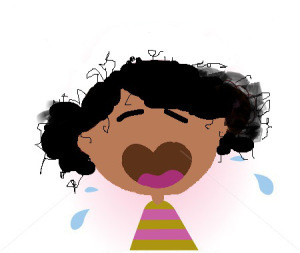
Why?! Why is my book not selling?! OMG, my life is over!!!
It has happened. I released my debut novel, Preppy Little Liars, as a trade paperback last Friday and as an ebook this past Thursday. So far, I’ve had a whopping three sales, none of which counts because they were from friends and family. The thing that I was dreading upon releasing this novel has become true: no one cares. I am officially in that increasing number of self-pubbed authors who can’t find an audience for their work. And for those of you (well, at least one of the three of you who’s actually visited my website—get off the computer, family) who tries to tell me, “But Amber—your book just came out last week. Give it time. You’ll get the book out there,” to that I say, “Bah!” Trying to comfort a fiction writer with logic and reason is futile.
We live in a constant state of fear. Fear that our writing’s not good enough; fear that we’ve wasted precious time doing something that no one else will “get;” fear that we’ll never obtain the fanbase necessary to convince a publishing company to take a chance on us and our work. And the fear and self-doubt are now going into overdrive for me.
I didn’t have unrealistic expectations for this book. I thought it would come out, maybe get a few sales from some people who expressed early interest, and then hopefully start building word-of-mouth sales. I’m aware I don’t write in a genre that’s popular. One of my three readers may say, “But you write YA! That’s very popular.” True. But that’s more of a target audience than a genre. The big selling genres, what’s hot and flying off the physical and virtual shelves these days in YA fiction are dystopian novels, or paranormal romances, or fantasy and sci-fi adventures—I write mysteries. And not the kind that involve the supernatural (although I have a fun idea for one of those in the future)—those sell. I write real teens in real settings with a bit of heightened reality, but at the end of the day, these stories are humorous, old school cozy mysteries. Preppy Little Liars is what would happen if Agatha Christie and Josh Schwartz had had a baby.
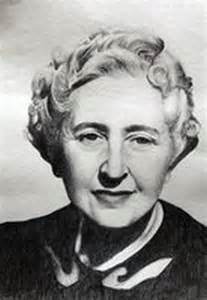
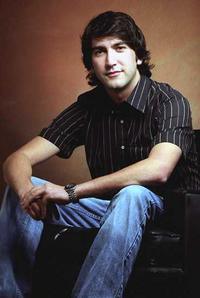 Josh and Agatha – hot couple alert!
Josh and Agatha – hot couple alert!
You know, if she wasn’t dead and all.
So I worried about that when I was writing and even after the thing had been edited and put to bed. Gone are the days of Nancy Drew and The Hardy Boys. YA has changed.
Nothing has made that more clear to me then the day I logged into my CreateSpace and KDP accounts and saw the three sales I made. My heart sunk. At least ten people had assured me before I even started marketing this book that they would get it—they didn’t. Even the people who said they wanted to read it after it came out haven’t read it (and if Goodreads is any indication, I can’t even give it away seeing as though my 10 chapter ebook on that site has had a staggering zero downloads so far).
That little nagging voice, the one all writers have that spring up at the most frustrating times, started whispering into my ear: This book is a flop. You should have known. It won’t sell any more copies—this is it for you. Pack it up and go on home. You couldn’t even sell Girl Scout cookies as a kid or get your own job—what made you think you could sell a book, idiot?!
Then I started thinking that the voice was right. Maybe I should have written something else. Maybe I shouldn’t have written anything at all. Maybe if I’d put Meg on the cover of PLL in a flowing white dress with cascading, wavy hair and stood her on top of a mountain with a sword and crossbow in hand, people would have bought the book. Or maybe if I had given her some kind of supernatural love interest, like a vampire—no wait, vamps are out again – demons are in. Yes, I should have given her a demon lover! Or a zombie! Zombies are HUGE!—maybe then my book would be moving. That got me to thinking of other ways I could try and get sales.
[image error]
“If you don’t buy my book, you DON’T love America.”
Appeal to people’s patriotism. Yeah, maybe my tagline on all of my forum posts should be, “If you don’t buy my book, you don’t love America.” Three readers, you’re probably saying to yourselves, “What does buying a book have to do with loving America?” Well, I’ll tell you. My name’s Amber. My name is in America, The Beautiful. Therefore, if you don’t buy my book, you clearly don’t think America is beautiful. You might as well be a socialist! (With this kind of logic, I should have been a politician.)
Play to the public’s vanity. This is a good one. I know I can be suckered into buying things when people flatter me with high praise or tell me the product being sold will make me the envy of all around me (but that might not work for those who don’t suffer from Narcissistic Personality Disorder so I may need to rethink this one…). Anyway, here was my strategy: I figured, Preppy Little Liars has a pretty cover. I could then tell people, “Buy this book. If you do, you too will be pretty.” Because you see, having attractive things makes one attractive by proxy. And who doesn’t want to be attractive? With Pantene style hair? (Even guys want Pantene hair, I’m sure of it.) And the buyers of this book would be cool, I’d point out, because they’d be the first to have this hot new book that would make them instantly attractive with gorgeous, salon-style hair for a fraction of the price and everyone wants to be ahead of the pop culture curve.
See?! Everyone wants this hair – even Zooey Deschanel!
Spam the hell out of everybody. I don’t have many Twitter followers and I can’t say I’m a big fan of the site. (I’ve joined and quit so many times over the years, it’s hard to keep track of the handles I’ve used.) I’m very rarely on it. And when I am, I try to retweet the messages people ask us to retweet, though the same courtesy is never extended to me, and just generally get into the spirit of the site. It doesn’t work. Again, I just don’t have enough followers who give a shit.
But I do have a long list of people in my address book, a fact I was recently made aware of after someone hacked into my Yahoo account and spammed me and everyone who’s ever sent a message to me, or me to them—that certainly got my attention. So why not write up some book copy and spam everyone with the information? Sure, some people might delete the message, or block me, or slap me with a restraining order, but surely a few people might be interested in buying the book, right? Aggressive marketing never hurt PT Barnum.
No, at the end of the day, none of these options would work. Despite some people’s beliefs, the book buying public isn’t stupid. They’d see right through these little desperate ploys and my book would remain right where it is: at the bottom of the (metaphorical) barrel. So what have I resigned to do, you ask?
Nothing. I went hard this last month trying to get the word out about this book, trying to get people excited, passionate, about my story. It didn’t work. So I’m done promoting and exhausting myself over something that just might not ever click with the public. I’m going to get me a margarita (or four), some chocolate, some laugh-out-loud comedies, and sit back, relax, and get on with my life.
And I’m not going to hit “refresh” on my browser again. Nuh-uh….okay, maybe just one more time.
edited to add: the follow this blog widget I added to the site claims I have 34 followers. What? Where? Lies, I tell you!


June 2, 2013
Spotlight On Debut Novel:
Preppy Little Liars
by Amber Turner
About the book: Meg Little desperately wants to be editor-in-chief of the Haverton Gazette. The former editor just resigned to complete a stint in rehab for a raging Adderall addiction and the competition for his replacement is fierce.
When Margaret Bean, Haverton Prep’s star equestrian, is bucked from her horse two weeks before regionals, Meg believes she may have found the story that will win her the coveted editorship. Margaret’s a gold medal-winning rider – she doesn’t make mistakes.
But the rest of the school buys her fall as an accident. Even the Gazette’s lead photographer and Meg’s best friend Stephen thinks the fall was innocuous – until Meg shows him a photo of Margaret’s horse sporting a cut saddle after Margaret’s fall. Clearly the “accident” was sabotage.
Meg’s prime suspect: Margaret’s teammate and Meg’s arch-nemesis Kitty Cooper. Kitty’s the only member of the team who was MIA after the fall and she’s acting way too shifty for Meg’s taste. Against Margaret’s wishes to let broken girls lie, Meg launches an investigation into the girls’ private lives convinced her amateur sleuthing will uncover the evidence needed to take down Kitty once and for all.
And if Meg happens to achieve journalistic glory in the process of defending Margaret’s honor, that’s a sacrifice she’s willing to make.
As regionals approaches and the investigation veers off in unexpected directions, Meg learns the students of Haverton are far more dangerous than their plaid skirts and blazers suggest – and all the little liars on Margaret’s team have something to hide.
Five Facts about the Author
Biggest Lie Ever Told: Hmmm…that’s a tough one. I’m a writer and an actress so lying comes pretty naturally to me [laughs]. It’s a requirement to do the job. The biggest lie I ever told was probably telling people in high school (and early on in college) that I wasn’t a virgin when I really was. I wanted to be “cool” for a while and being 18 and still having your V-card was not considered cool. I thought it made me all mysterious and badass to present myself as a man-eater on the prowl, but really, all it did was make me feel like a total poseur.
Fact was, being a geeky wallflower who’d rather sit in her living room reading books and watching movies on a Friday night instead of going to parties, and never so much as kissing a boy for real, let alone sleeping with one, was cool – because it was what I liked doing. Having standards isn’t a bad thing. Not following the crowd, whether that involved sex, drinking, or experimenting with drugs (the latter of which I never did either), and doing what appealed to me wasn’t a bad thing. I wish I had figured that out sooner and spared myself some embarrassment, but it was a great lesson learned.
I’m cool because I say so – that’s all the validation I need. I hope that same spirit comes through the characters of Meg and Stephen in Preppy Little Liars. They don’t follow trends, they do what they like, and they don’t really care what their peers think. I wish I had these kids’ confidence when I was their age. That’s partly why I wrote this novel – to write a much cooler version of my high school self.
Guilty Pleasures: Everything on the Starbucks menu. You should see my debit card statements – every other charge is from that crack den. There, and Chipotle. Non-food/beverage guilty pleasures? There are so many of them so I’ll try to be brief and only list the ones I’m typically really embarrassed to admit to liking:
Gossip Girl (TV show): I own the first two seasons on DVD (my favorite seasons – I loved Chair!) and need to get the rest at some point. Sure, it was a terribly written teen soap, but Ed Westwick and Leighton Meester absolutely killed it in their respective roles as Chuck Bass and Blair Waldorf. Their dysfunctional relationship was like something out of a twisted gothic novel – I couldn’t get enough. And the show as a whole was like a teen Gatsby in terms of the decadence and lushness of everything from the clothes (oh, how I wish I had Serena van der Woodsen’s wardrobe) to the lavish parties they were constantly attending. What I wouldn’t give to be in that world for five minutes!
Fanfiction: I’ve got to admit, I’ve spent way too much time reading and writing this stuff. I finally “came out” as a fanfic writer to my co-workers a few years back and it was the most freeing experience [laughs]. I don’t think most of them had a clue what fanfic was or why I spent hours upon hours researching songs for various musical scenes for my Glee fic, so that helped.
High School Journalism Horror Stories: Again, this is a topic where I have so many, I could write a book! One of the ones that stands out to me was the day we went to a journalism conference in Columbus and our bus broke down, leaving us stranded two hours from home in a cramped auto shop (we had to wait there while the bus was serviced) with no food or drink. For four hours.
The thing that made it so awful was that I didn’t like the majority of my colleagues. Imagine the people you dislike the most. Then, imagine being trapped somewhere with them, with no escape in sight, for four, flipping hours! Luckily, two of my friends were there to keep me from snapping whenever one of my fellow staff members said something mildly racist or just plain dumb (yeah, I went to that kind of school with those kind of people). It was a nightmare.
Biggest Inspirations: That’s hard. Most of my inspirations tend to be famous people. Someone like Prince, for example: this is a guy who dressed in women’s underwear, high heels, and sang rock music in Minneapolis when other black musicians just weren’t doing that. But he didn’t care if he got booed off stages. He played the music he wanted to play and dressed the way he wanted to dress no matter what anyone had to say. He frequently changes up his look and sound – he’s a real trailblazer, and an incredible artist, and he inspired me to make music from a very early age. If I ever met him in real life, I think I’d have a heart attack on the spot. That dude is just too cool. There’s no one like him; he’s an original.
Stephen King is another inspiration. I started reading his novels when I was four so he was the first real storyteller I can remember reading and loving. The way he can craft a plot and draw a character is like no one else working in genre fiction today. I wish I could be half the storyteller he is – I haven’t liked every story he’s done, but he has written some truly captivating stuff that I could re-read again and again.
And I had some great English teachers who encouraged my writing from a young age. I remember my second grade teacher, Ms. Parkinson, sat me on her lap one day and told me I had a wonderful imagination and that I should be a writer when I grew up. Every single teacher I had after that said the same thing. My fourth grade teacher, Mrs. Huggins, had me write a play for our class to perform, and my Honors English teacher my senior year of high school told me she fully expected to see my name on bookstore shelves one day. (In about ten years’ time, people will be reading this going, “Bookstores? What’s a bookstore?!”)
But my favorite English and writing teachers I had were the ones I worked with in college. He might not be thrilled to hear this, and I don’t know if he still works at Drexel or not, but Professor Stein was the inspiration for the Mr. Murphy character in Preppy Little Liars. Although I hasten to add, Professor Stein is a much better person than my character! [laughs] Seriously, he was one of the coolest people I had the pleasure to know and one of the funniest, too.
On the Self-Publishing Decision: There are many reasons why I chose to go this route. Like most writers, I dreamed of clinching a traditional New York City publishing contract. I think last year, I even made the incredibly embarrassing statement over on the NaNoWriMo forums that self-publishing would be my last resort for if/when I couldn’t snag an agent.
Boy, have times (and opinions) changed. It may surprise some people, but I didn’t even attempt to go traditional with Preppy Little Liars, or with any other novel for that matter. I finished my first novel, a supernatural suspense, last December and thought I’d spend the majority of 2013 editing the hell out of it to get it into publishing shape. I was then going to shop it around to agents and do the whole traditional song and dance.
But then I read author Dean Wesley Smith’s blog series called “Killing the Sacred Cows of Publishing,” where he broke down the economics of being a traditionally published author v. going it alone. I realized, from an economic standpoint, I’d probably do much better as a self-pubbed author than as a mid-list author at a major publishing house. I had no illusions that my supernatural suspense novel was going to be a huge blockbuster – those stories are much rarer than you think – and if I was only going to be making pennies on a dime for my work, I thought, why not just produce it myself and cut out the middle man? Why pay an agent 15% of a miniscule advance and why let a publishing house take 80% of a modest royalty?
It just didn’t seem smart to me on a business level.
Then, my overtime hours at my day job were cut, I got really sick and had a ton of medical bills I wasn’t going to be able to pay roll in and everything seemed to be spiraling out of control. And for someone like me who needs to be in control of things 24/7, this was terrifying. But I said to myself, “You’re a writer – write,” and decided that that was how I was going to help myself get out of financial trouble. The idea for the Meg Little series came to me and the rest is history.
The first draft of PLL was written in 19 days and the response I received from five different beta readers was overwhelming – they loved it. I thought for sure some people wouldn’t get it, but the feedback I’ve gotten has been more along the lines of, “How fast can you write book two and get it to me? I need to read it now!” So that definitely strengthened my resolve to self-pub. I can get my work out to my readers on my schedule and I don’t have to worry about someone dictating to me what I can or can not write. It’s a good feeling. And I’m pumped for book two!
Preppy Little Liars is tentatively slated for release June 21st in print via Amazon’s CreateSpace. E-book versions will be available shortly after the print release. Stay tuned for more info!


Amber Turner's Blog
- Amber Turner's profile
- 7 followers


